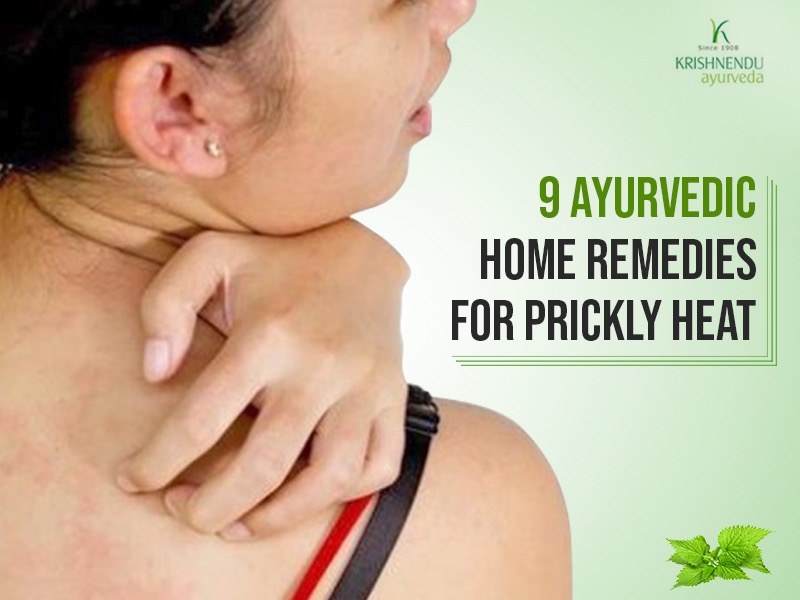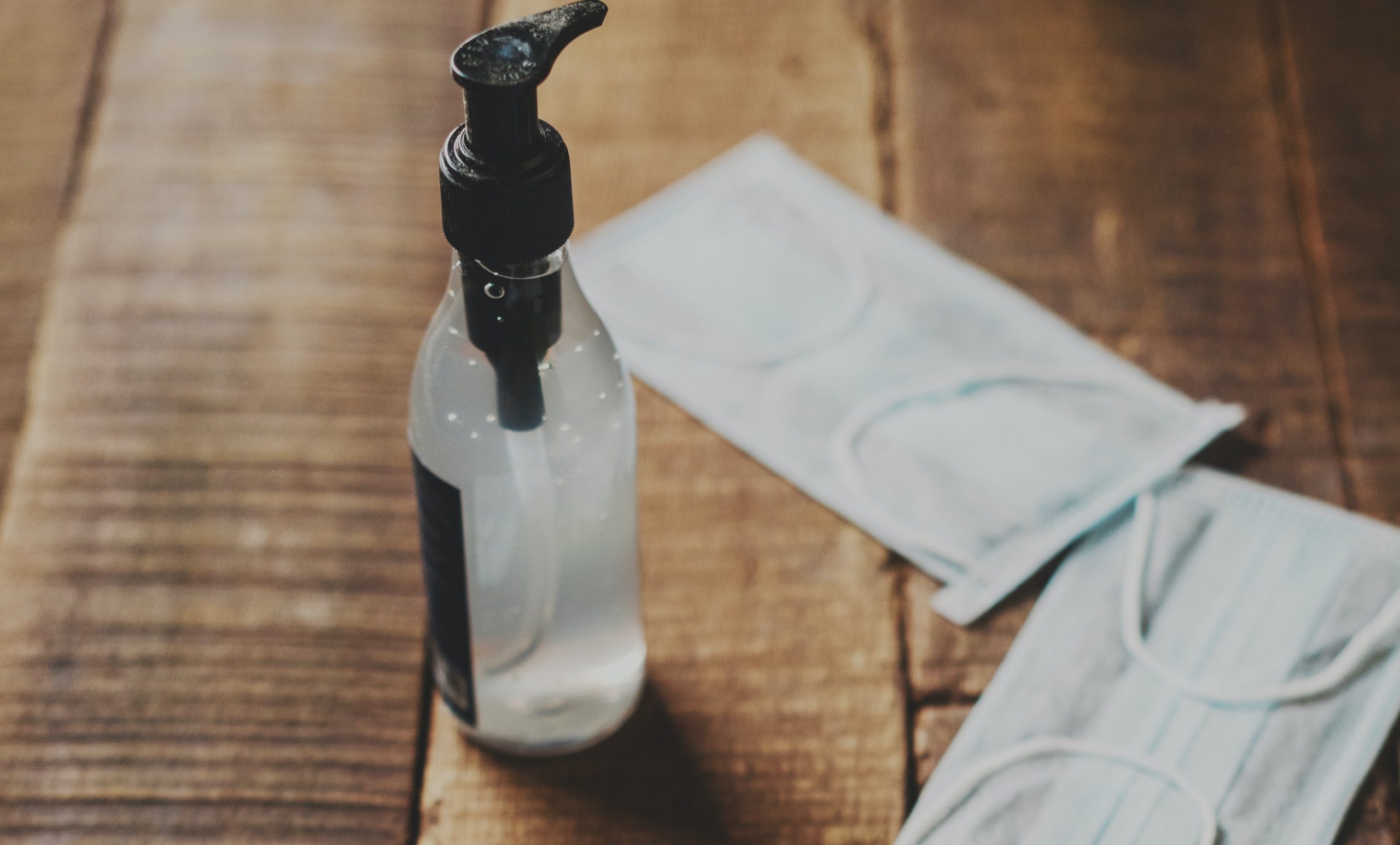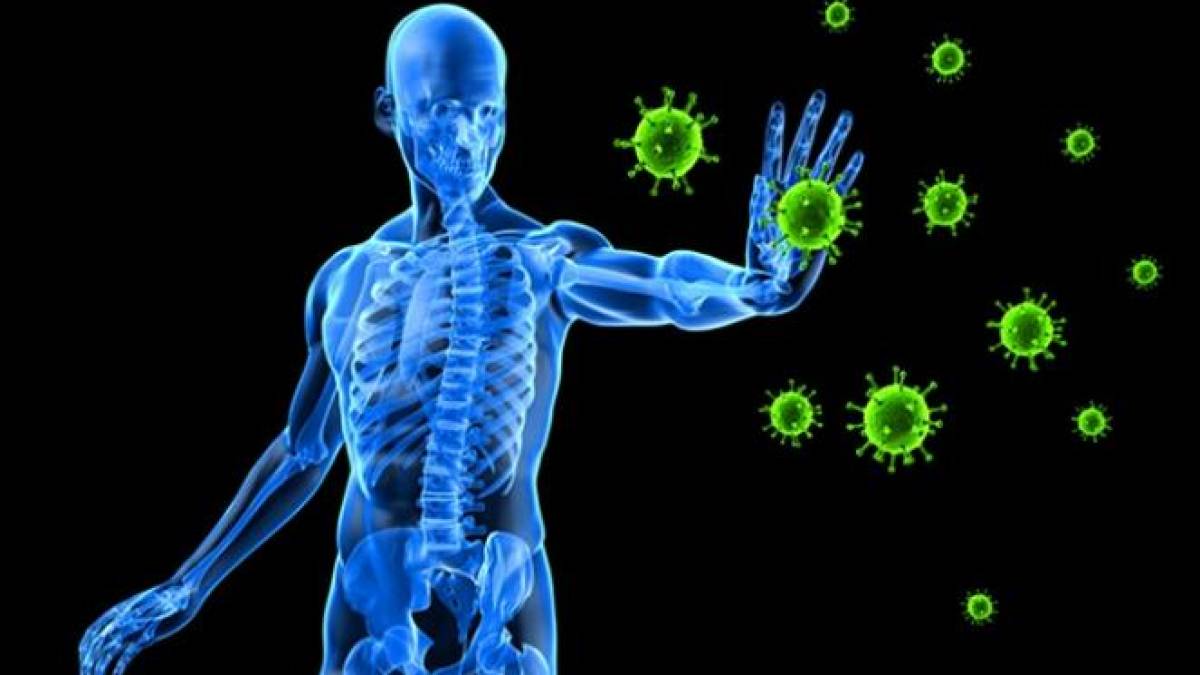One of the most common skin problem in the summer season, prickly heat causes itchy rashes usually on the face, neck, back, chest and thighs. It occurs when sweat cannot escape through the hair follicles and is trapped in the skin forming small raised red spots.
Here are 9 effective Ayurvedic home remedies for prickly heat.
• Neem leaf paste – The healing properties of neem is effective against skin inflammation and itching. Apply neem leaf paste on the affected area and wash it off after drying for managing prickly heat.
• Sandalwood and rosewater – The antiseptic, astringent and anti-inflammatory properties of sandalwood combined with rose water act as a soothing home remedy for the burning sensation and skin irritation. The refreshing and pleasant smell of sandalwood also wards off the bad odour of sweat.
• Aloe vera and cucumber gel – The cooling properties of both the aloe vera and cucumber gel provides relief to prickly heat. Apply a paste made of aloe vera and cucumber to alleviate inflammation and ease redness.
• Multani mitti – Also called fuller’s earth, multani mitti helps unclog the pores and refreshes the skin. Make a paste of it with rosewater and apply on the affected area for relief.
• Chickpea flour/Besan – It acts as a cleanser and removes impurities, while also exfoliating dead skin cells. Make a paste of besan and water or rose water and apply on the affected area. Wash off with cool water after 15 minutes.
• Camphor and neem oil – Apply a paste made of powdered camphor and neem oil is effective against itching and burning sensation. Antimicrobial properties of neem will prevent infections, while the micture will also be cool and refreshing to the skin.
• Honey – Hailed for its antibacterial properties, honey can be applied on the affected area to sooth the itchiness and skin irritation.
• Papaya – Papaya helps ease the burning sensation, unclogs the pores and exfoliates dull skin. Mash some ripe papaya and apply on the prickly heat.
- • Epsom salt bath – Add epsom salt to warm bath water and soak in it or apply a cloth soaked in epsom salt water on the rash to exfoliate dead cells and heat the rashes.
Latest posts by Dr.Sandeep Krishna (see all)
- Covid 19 Measures - August 21, 2020
- How to Boost your Immune System with Ayurveda? - April 1, 2020
- 10 Superfoods to keep you cool during the Summer Season - March 25, 2020






